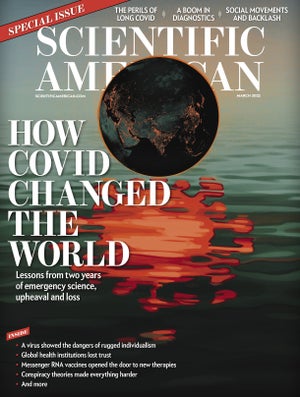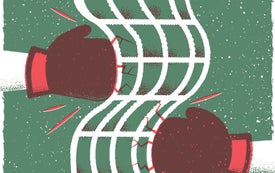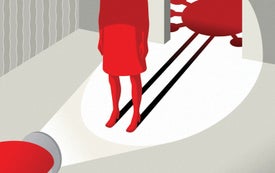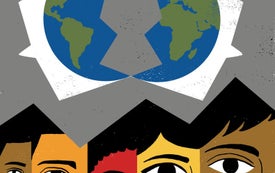
You are currently logged out. Please log in to download the issue PDF.
Features
The Pandemic Set Off a Boom in Diagnostics
COVID accelerated the development of cutting-edge PCR tests—and made the need for them urgent
COVID's Uneven Toll Captured in Data
Visualizing ongoing stories of loss, adaptation and inequality
COVID Revealed the Fragility of American Public Health
What happens when a deadly virus hits a vulnerable society
A High-Speed Scientific Hive Mind Emerged from the COVID Pandemic
The pandemic pushed researchers into new forms of rapid communication and collaboration
COVID Changed the World of Work Forever
People realized their jobs don’t have to be that way
COVID Pushed Global Health Institutions to Their Limits
The need to reinvent the World Health Organization has become abundantly clear
COVID Has Made Global Inequality Much Worse
The poor, no matter where they live, will suffer the greatest lasting toll
Billionaire Space Tourism Has Become Insufferable
From brave exploration to just another playground for the 0.0000001 percent
The Lab-Leak Hypothesis Made It Harder for Scientists to Seek the Truth
Virus origin stories have always been prone to conspiracy theories. COVID disinformation has threatened research—and lives
Pandemic-Era Research Will Pay Off for Years
The COVID research infrastructure will help fight all sorts of pathogens
Introducing 21 Ways COVID Changed the World
The pandemic didn’t bring us together, but it did show us what we need to change the most
We're No More Serious about the Climate Crisis Than We Were before the Pandemic
Emergency managers are stuck reacting to a constant march of disasters
How the Pandemic Remade Science Journalism
It’s no longer possible to separate science and politics
COVID Long Haulers Are Calling Attention to Chronic Illnesses
But society is not prepared for the growing crisis of long COVID
Nasal Spray COVID Preventives Are Finally in Development
Different methods of drug delivery give us more tools to fight disease
Messenger RNA Therapies Are Finally Fulfilling Their Promise
Instructing our cells to make specific proteins could control influenza, autoimmune diseases, even cancer
COVID Disrupted Everything--Even Rocket Launches
Surprising supply chain breakdowns
COVID Is Here to Stay
How do we live with it?
Vaccine Inequality Has Shut Vulnerable People Out of Plans to Save the Planet
Those with the most at stake were heard the least
How a Virus Exposed the Myth of Rugged Individualism
Humans evolved to be interdependent, not self-sufficient
The Pandemic Showed the Promise of Cities with Fewer Cars
Residents learned what was possible. Some politicians fought to keep it that way
The Pandemic Deepened Fault Lines in American Society
COVID energized the Black Lives Matter movement—and provoked a dangerous backlash





















